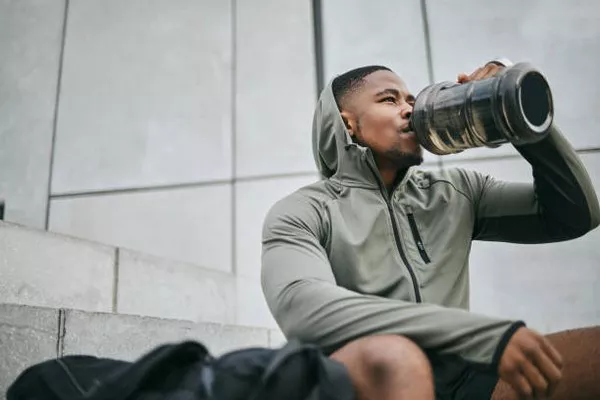Losing belly fat is a common fitness goal for many people. While diet and exercise play crucial roles in this process, one often overlooked factor is hydration. This article delves into how much water you should drink daily to support weight loss, particularly targeting belly fat.
The Importance of Hydration in Weight Loss
Hydration is essential for overall health and well-being. Water supports numerous bodily functions, including:
Digestion and Metabolism: Adequate water intake aids in the efficient breakdown and absorption of nutrients.
Detoxification: Water helps flush out toxins and waste products through urine.
Appetite Regulation: Proper hydration can help control hunger and reduce the likelihood of overeating.
Recommended Daily Water Intake
The Institute of Medicine (IOM) recommends a daily water intake of about 3.7 liters (125 ounces) for men and 2.7 liters (91 ounces) for women, including all beverages and moisture from food. However, individual needs may vary based on factors like:
Body Size: Larger individuals may require more water.
Activity Level: Active individuals need additional hydration.
Climate: Hot or humid environments increase water needs.
How Water Affects Belly Fat Loss
Drinking water can indirectly aid in belly fat loss through several mechanisms:
1. Boosting Metabolism
Water consumption can temporarily increase your metabolic rate. This effect, known as water-induced thermogenesis, can help burn more calories.
2. Reducing Caloric Intake
Drinking water before meals can help you feel fuller, which may lead to reduced calorie consumption. Studies show that consuming water before meals can lead to significant weight loss over time.
3. Improving Exercise Performance
Staying hydrated enhances physical performance, allowing you to exercise more effectively. Increased exercise intensity and duration can contribute to more significant calorie expenditure and fat loss.
4. Preventing Water Retention
Proper hydration prevents the body from retaining excess water, which can contribute to a bloated appearance around the belly. When the body is well-hydrated, it is less likely to hold onto extra fluid.
How Much Water Is Optimal for Losing Belly Fat?
There is no one-size-fits-all answer, but general guidelines suggest:
Eight 8-ounce glasses a day: Often referred to as the “8×8” rule, this equates to about 2 liters or half a gallon of water daily. It’s a practical and easily remembered guideline.
Calculate Based on Body Weight: A more personalized approach is to drink approximately 30-35 milliliters of water per kilogram of body weight. For example, a 70 kg person should aim for 2.1 to 2.45 liters of water daily.
How to Increase Water Intake
To ensure you’re drinking enough water, consider these tips:
1. Carry a Reusable Water Bottle
Having a water bottle with you at all times makes it easier to sip throughout the day. Choose a bottle with measurements to track your intake.
2. Set Regular Reminders
Use apps or alarms to remind yourself to drink water. Regular reminders can help establish a consistent hydration habit.
3. Infuse Your Water
If plain water is unappealing, infuse it with fruits, vegetables, or herbs for added flavor and variety. Examples include lemon slices, cucumber, or mint leaves.
4. Monitor Your Intake
Track your daily water intake using a journal or app. Keeping track helps ensure you meet your hydration goals.
See Also: How To Reduce Cortisol Belly Fat
Potential Pitfalls of Overhydration
While drinking water is beneficial, excessive intake can lead to water intoxication or hyponatremia, where sodium levels in the blood become dangerously low. Symptoms may include nausea, headache, and confusion. It’s essential to balance water consumption and listen to your body’s signals.
Hydration and Diet
A balanced diet complements hydration in promoting belly fat loss. Focus on:
Eating Water-Rich Foods: Include fruits and vegetables with high water content, such as cucumbers, watermelon, and oranges.
Reducing Sugary and High-Calorie Beverages: Replace sodas and energy drinks with water or herbal teas to cut unnecessary calories.
Combining Hydration with Exercise
Integrating proper hydration with regular physical activity enhances weight loss efforts. Aim for at least 150 minutes of moderate-intensity exercise per week, including both cardio and strength training. Drinking water before, during, and after exercise helps maintain performance and recovery.
Signs of Dehydration
Be aware of dehydration signs, which include:
Thirst: Feeling thirsty indicates your body needs more water.
Dark Urine: Urine that is dark yellow or amber may signal dehydration.
Dry Mouth and Skin: A dry mouth or skin can be a sign of inadequate hydration.
Frequently Asked Questions (FAQ)
How can I tell if I’m drinking enough water?
Monitor your urine color. Light yellow suggests proper hydration, while darker colors indicate a need for more water. Also, pay attention to your thirst levels and overall well-being.
Can I drink too much water?
Yes, excessive water intake can lead to water intoxication. Stick to recommended guidelines and listen to your body’s signals.
Should I drink water before or after meals?
Drinking water before meals can help control appetite, while drinking after meals aids in digestion. Both practices support weight loss.
Does drinking water alone lead to belly fat loss?
While water supports weight loss, it should be combined with a balanced diet and regular exercise for optimal results.
Conclusion
Incorporating adequate water intake into your daily routine is a valuable strategy for supporting weight loss, particularly around the belly area. Aim for around 2-3 liters of water daily, adjust based on personal factors, and combine hydration with a healthy diet and regular exercise. By making hydration a priority, you can enhance your overall well-being and support your efforts to achieve a healthier body composition.


